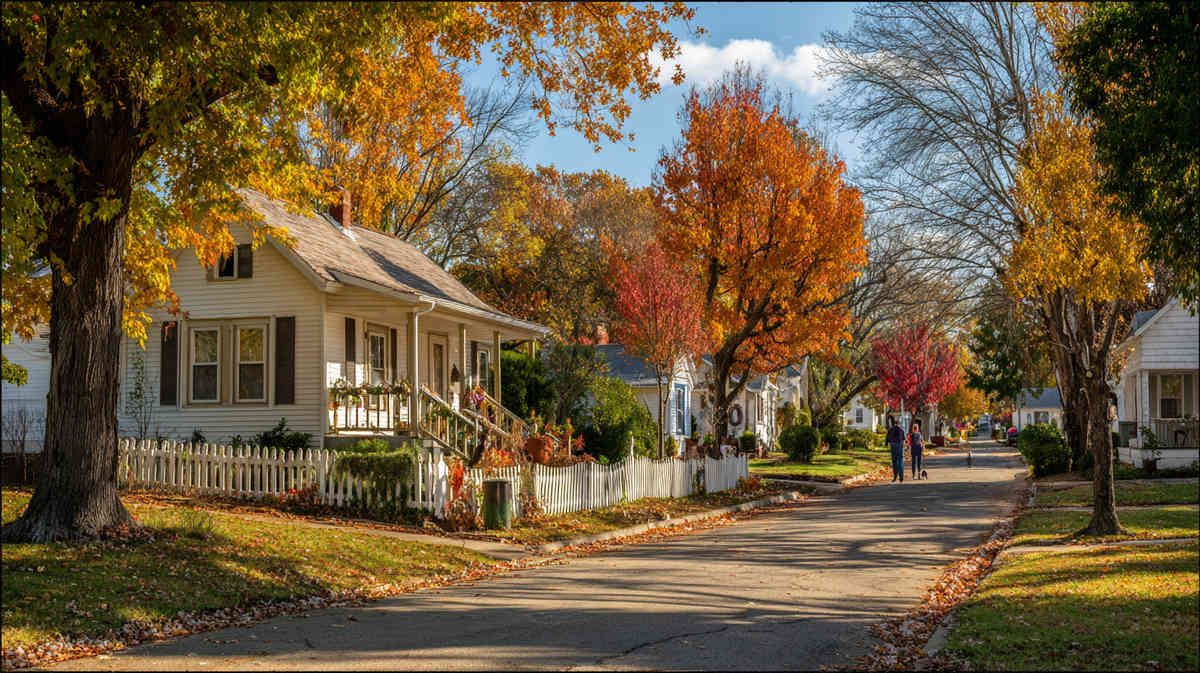So you bought a place in Ashland, painted the porch, learned your neighbors’ dog’s name, and now that whisper in the back of your mind is asking a loaded question: “Is it time to sell, or do I wait a little longer?” Sit tight. You’re about to get real, no-nonsense guidance that links market data to everyday life in mid-Missouri. By the time you hit the bottom of the page, you’ll know exactly how to size up your own clock.
First Things First: The Popular Five-Year Rule
Most real-estate pros toss around a simple guideline: hang onto a house at least five years before cashing out. The thinking is straightforward.
- Closing costs on the way in and on the way out easily add up to eight, sometimes nine percent of the price.
- Mortgage amortization is interest-heavy in the early stretch, so the principal balance barely budges during years one through three.
- Homes in Ashland, historically, have appreciated about two to four percent a year.
Do the napkin math and five years becomes the magic spot where equity growth finally outmuscles those transaction fees. Sell sooner and you risk writing a check at closing. Hold past five and you usually pocket more.
The Equity Equation, Broken Down
Equity is the silent partner in every move you make. It grows in two ways. Your monthly payments chip away at the loan. Appreciation lifts the home’s market value. Combine both and you get that sweet net figure the title company wires to your account at closing.
I ran the numbers on a sample $300,000 purchase in Ashland. Assume a thirty-year fixed loan at 6.5 percent and a conservative three-percent appreciation curve:
- Year 1: Equity roughly $17,000
- Year 3: Equity about $38,000
- Year 5: Equity jumps to roughly $66,000
- Year 7: Equity pushes north of $96,000
Not bad, right? Notice the curve rises faster after year four, thanks to compounding appreciation. That is why many locals keep the keys at least half a decade.
What’s Happening in Ashland Right Now
Ashland is not a sleepy pass-through town anymore. Boone County’s job base keeps expanding, Columbia’s spill-over buyers head south for calmer streets, and the Highway 63 corridor makes commuting a breeze. All that momentum has pumped the median sale price to roughly $315,000 in 2024, up from $268,000 just three years earlier. Still, inventory remains tight, averaging just two months of supply. Low supply tends to prop up values. Translation: if you bought pre-2022, you’re sitting on meaningful gains.
Interest Rates: Friend or Foe?
Rates jumped in 2022, cooled a bit in 2023, and hover in the mid-six range as you read this. Higher borrowing costs do two things:
- They cap what new buyers can afford, which can slow price growth.
- They make your own replacement mortgage pricey, squeezing upgrade plans.
So ask yourself: Do you plan to rent for a spell after selling? Cool, rate hikes matter less. Need to buy on the same day you hand over your current keys? Waiting for a rate dip could save you real money. Sometimes timing a sale around a refinance wave is smarter than listing during an uptick.
Counting the True Cost of Selling
Let’s peel back the curtain on the dollars you will spend to get that home sold:
- Agent commission, often five to six percent in Missouri
- Seller-side title fees and recording charges, roughly one percent
- Minor repairs and touch-ups, call it a flat $1,500 to $3,000
- Staging or professional photography, $300 to $800
- Property taxes prorated to closing day
When you add it all up, many Ashland sellers commit seven to eight percent of the sale price to expenses. That is exactly why equity must beat that figure before you think about planting a For-Sale sign.
Mortgage Nuts and Bolts: The Break-Even Point
Every loan has its own calendar. Conventional thirty-year mortgages lighten up on interest around year five. FHA loans can tack on mortgage insurance premiums if you hold minimal equity. Some older loans even carry prepayment penalties, though they are rare today.
Your personal break-even comes down to one homework assignment: pull your current payoff quote, grab a pen, and compare it to a realistic sale estimate from a local agent. If the difference covers selling costs and leaves emergency-fund cash, congratulations, you are free to move without red ink.
Life Happens: When Timelines Shift Overnight
Rules of thumb look tidy on paper, yet real life barges in with curveballs. Weddings, growing households, career transfers, or a sudden urge for less maintenance can all override the five-year plan. Plenty of Ashland owners list in year two simply because the house no longer fits daily life. If that is you, focus on minimizing losses rather than chasing perfect timing. A clean, well-priced listing can still soften the financial pinch.
Roots, Neighbors, and Good Vibes
Ashland’s charm is its small-town spirit mixed with easy access to Columbia’s big-city perks. Community concerts on the lawn, cheers at Southern Boone football games, downtown coffee chats, that magic takes time to soak in. Many homeowners swear they would never trade those ties for a few extra bucks of equity. Ask yourself: does the neighborhood lift your mood each morning? If so, sticking around another year or two may serve both wallet and heart.
A Quick Gut-Check List
Use this mini audit to see where you stand right now:
- Current equity covers eight percent in selling costs
- Replacement housing plan is locked in, mortgage rate included
- No major repairs are looming that could swamp your proceeds
- Personal goals, job plans, and family needs align with a sale
- You feel more excited than anxious when picturing moving day
Hit three or more and you are probably ready. Miss more than you hit and a little patience could be wiser.
Ready to Map Out Your Next Move?
The question “how long should you own a home before selling Ashland” does not have a single answer, yet the outline is clearer than ever: grow equity until it outruns selling costs, watch interest rates like a hawk, and factor in your lifestyle curveballs.
When you blend those pieces, the right timing usually reveals itself. Reach out to a trusted local agent, crunch exact numbers, and sleep on the decision for a night or two. The goal is simple: hand off the keys with zero regret. Now go look at your payoff statement and start planning. Your next chapter is already on deck.






